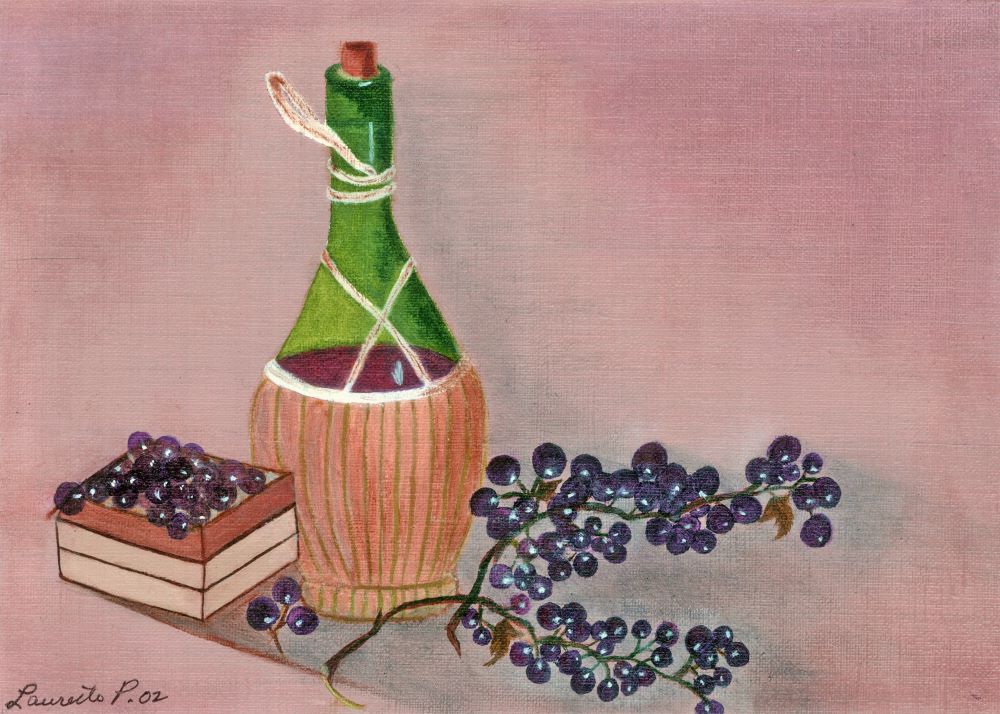
We can still become the best ‘wine’ if we allow God as the Master Winemaker to work in our lives.
For centuries the grape has been the perfect fruit for winemaking since it contains everything needed to make a good wine. This is also why only grape wine is used at Mass, because it represents Christ who is himself perfect.
Since Combermere is not grape country, we use for wine whatever we can produce ourselves or reasonably purchase.
I have been the Madonna House winemaker for twenty years, and I’ve made wine from pears, apples, peaches, rhubarb, and even over-ripe bananas. Once we had a poor fruit harvest, so I used beets, squash, and parsnips.
We do purchase grape wine concentrate to make wine for two specific feast days, Holy Thursday and Corpus Christi, because they both represent Christ in his Body and Blood, and it is only fitting that the perfect fruit be used.
Unlike Christ, none of us are perfect, so we are like the wine that is made from everything except grapes! However, we can still become the best “wine” possible if we allow God as the Master Winemaker to work in our lives.
Here are a few of my thoughts about this process.
When making non-grape wines, I have various ingredients that I need to use in each of my recipes. Take, for instance, peach wine. I always need to add an acid blend or else the wine will taste insipid. It brings to mind the times I go through the motions of going to church, saying certain prayers, doing good works, but without a deep relationship with God.
Rhubarb wine on the other hand, needs no added acidity but it needs tannin. Tannin counters acidity, and a lack of tannin results in a kind of harshness. It might be compared to times when we show little mercy or forgiveness. We all know how hard that can be to “swallow”.
Apple wine has a lot of pectin, so I need to add a pectic enzyme. This breaks down the pectin so that the wine will not be cloudy when it is done. I think of pectic enzyme as grace and blessings to clear the soul, bringing both peace and healing.
I use a specific kind of yeast especially formulated for non-grape wines. It will combat and overpower the natural yeasts that are found in most fruits. This is a metaphor for the way we live out our baptism, not allowing outside influences to prevent us from living fully as children of God.
If my yeast is old, and I’m uncertain if it can do what it needs to do, I add yeast nutrient which gives that little extra push to the yeast. I equate this with using the sacraments of the Church, and sacramentals like holy water and blessed salt. These all boost our life of faith.
All the things I do with wine remind me that God is the Master Winemaker who cares about how each of us matures as we go through life. He wants us to be the best we can become.
Several years ago, I made a banana wine that wouldn’t clear. I tried all my “tricks,” chilling the wine, using bentonite clay, but nothing worked. This had never happened to me before.
I decided to taste it, and yes, this particular batch of wine had gone bad. For the first time in all my years of winemaking, a batch had picked up some bacteria. There were thirty gallons, and there was nothing I could do to salvage them. I was going to have to dump the whole batch.
I was devastated, and for a few days, I couldn’t even tell anyone. I kept asking myself what I had done wrong, blaming myself for carelessness The tears kept flowing.
After about a week of this, I decided I needed to bring my deep sadness to the Lord. One of my brothers helped me dump the wine at the base of a cedar tree. Then I went and prayed to the Lord for some word of consolation.
As I prayed, I heard a quiet voice say to me in my heart, “Janine, now you know how I feel when a soul is lost.” I sat very still and let that word sink in.
To my surprise, I felt a deep peace. The Lord was allowing me to experience, in a small way, what he feels — and feels much more deeply than I ever could.
Thank you, Lord.
Wine & Grapes painting by Laurette Patenaude




